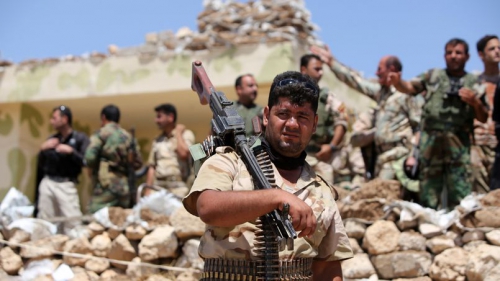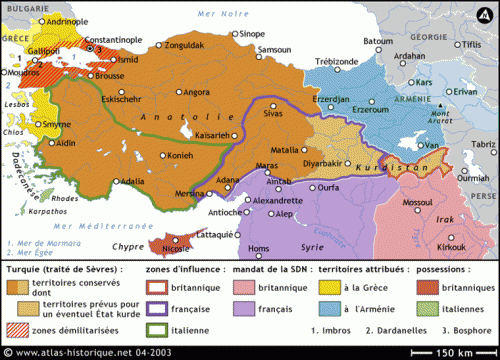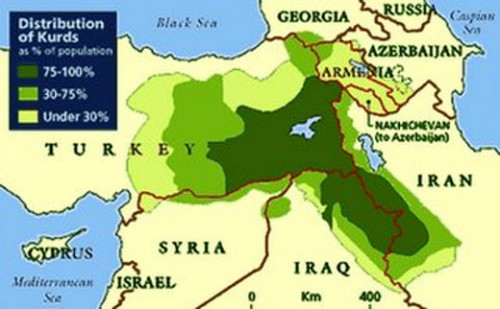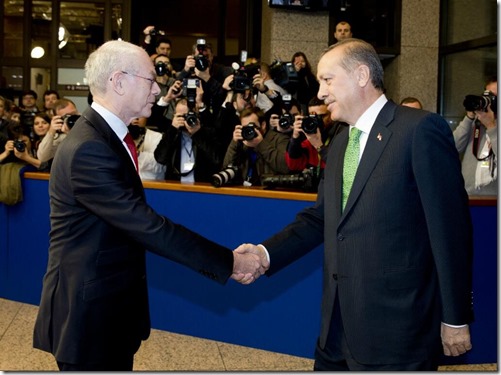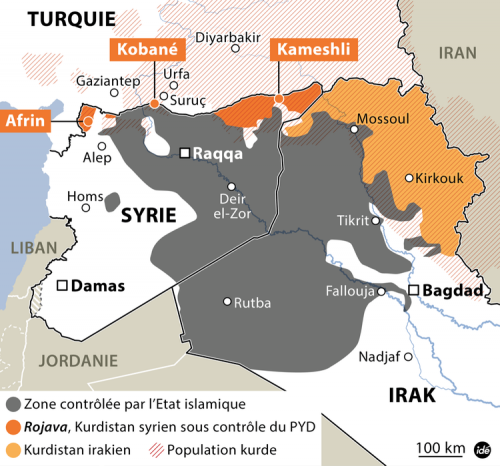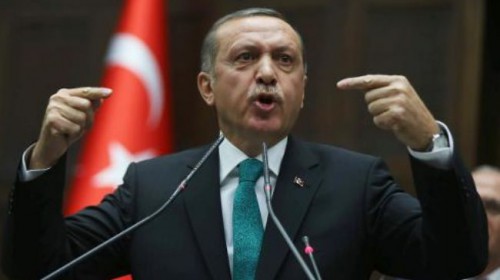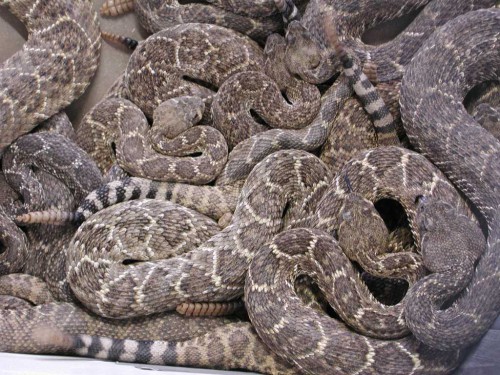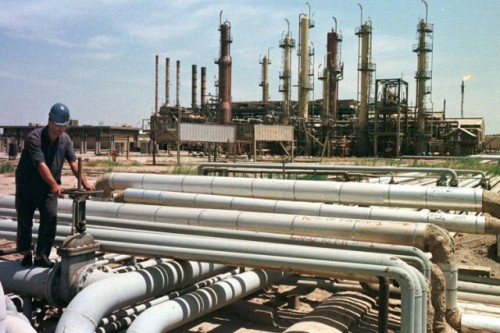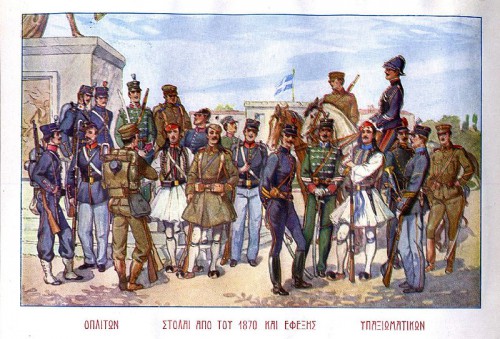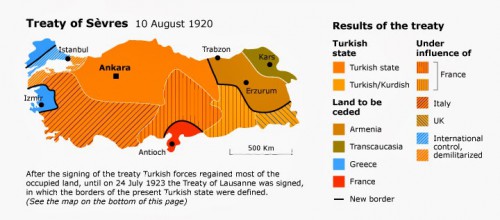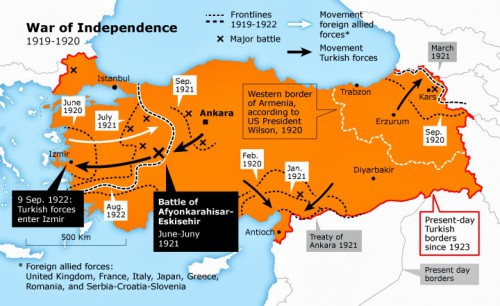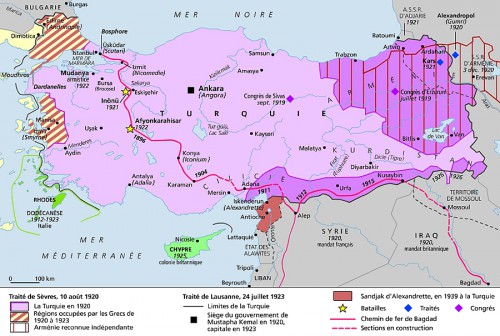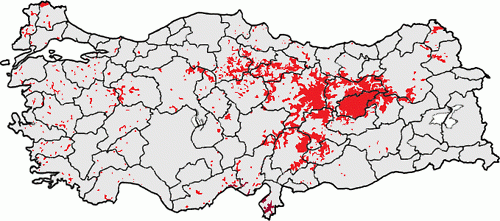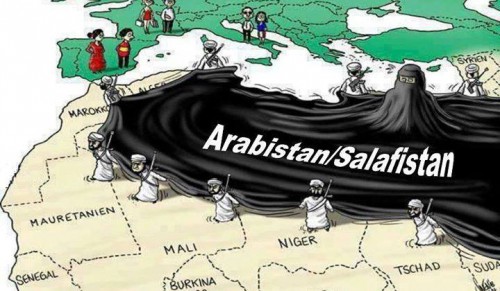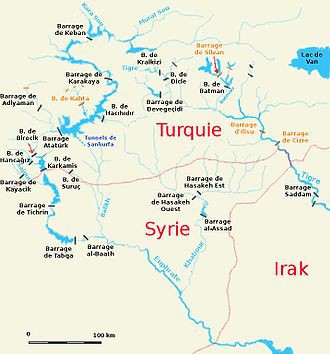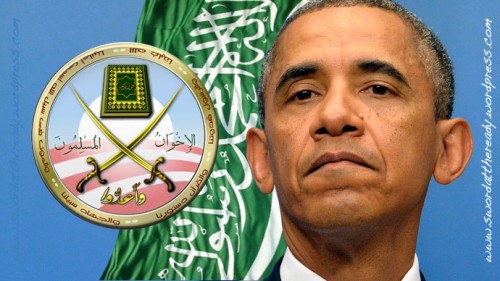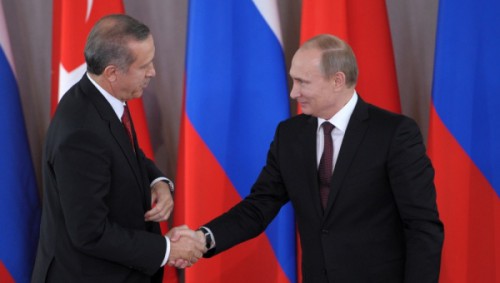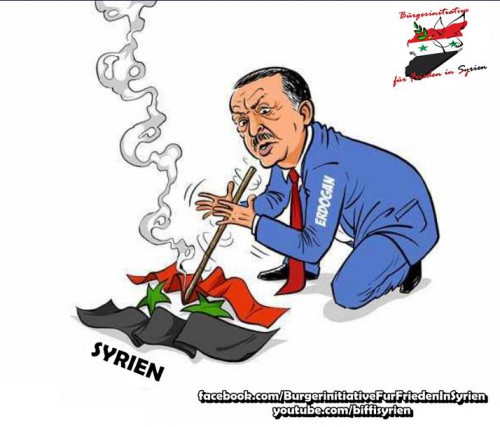
Renverser des gouvernements: une pratique étasunienne bien rodée
Auteur : Washington's Blog & http://zejournal.mobi
Énoncer l’ensemble des pays victimes de la politique étasunienne serait difficile en un seul article, cela serait plutôt sujet à écrire un livre, mais un résumé est toujours possible quand à quelques événements ayant eut lieu, car dans le domaine, ils sont très prolifiques, en France avec De Gaulle en Mai 68, c’était eux, en Ukraine avec les néo-nazis qui ont accédé au pouvoir, idem, en Tunisie, pareil, etc… Les Etats-Unis ont l’entrainement, les moyens financiers et les outils, et vous en avez quelques exemples ici:
Les USA ont déjà renversé les gouvernements de Syrie (1949), d’Iran (1953), d’Irak (par deux fois), d’Afghanistan (par deux fois), de Turquie, de Lybie et de bien d’autres pays riches en pétrole.
Syrie
Chacun sait que les USA et leurs alliés ont fortement soutenu les terroristes islamiques de Syrie, dans leur tentative de renverser le régime en place dans le pays.
Mais saviez-vous que les USA ont déjà exécuté un changement de régime en Syrie par le passé ?
La CIA a soutenu un coup d’état d’extrême droite en Syrie en 1949. Douglas Little, professeur au Département d’Histoire de la Clark University a écrit :
« Déjà, en 1949, cette nouvelle république arabe indépendante fut un important champ d’expérimentation pour les premières tentatives d’actions clandestines de la CIA. La CIA y a encouragé en secret un coup d’état d’extrême droite en 1949. »
La raison pour laquelle les USA ont initié ce coup d’état ? Little explique :
« Fin 1945, la Arabian American Oil Company (ARAMCO) a présenté ses plans pour la construction du Trans-Arabian Pipe Line (TAPLINE) qui devait relier l’Arabie Saoudite à la Méditerranée. Grâce à l’aide US, ARAMCO put obtenir des permis de passage de la part du Liban, de la Jordanie, et de l’Arabie Saoudite. Mais le permis pour faire passer le pipeline par la Syrie fut refusé par le parlement [syrien]. »
En d’autres termes, la Syrie était le seul obstacle à la construction d’un pipeline lucratif. (En fait, la CIA a mis conduit des actions de ce type depuis sa création.)
En 1957, le président américain et le premier ministre britanniques se mirent d’accord pour déclencher à nouveau un changement de régime en Syrie. Little, en bon historien, indique que le complot en vue de la réalisation du coup d’état fut découvert et stoppé :
« Le 12 aout 1957, l’armée syrienne encercla l’ambassade des USA à Damas. Après avoir annoncé qu’il avait découvert un complot de la CIA pour renverser le président Shukri Quwatly, de tendance neutre, et installer un régime pro-occidental, le chef des services de contre-espionnage syriens Abdul Hamid Sarraj expulsa trois diplomates US du pays…
C’est ainsi que le chef des services de contre-espionnage syriens, Sarraj, réagit avec rapidité le 12 aout, en expulsant Stone et d’autres agents de la CIA, en arrêtant leurs complices, et en plaçant l’ambassade des USA sous surveillance. »
Les néoconservateurs établirent à nouveau des plans en vue d’un changement de régime en Syrie en 1991.
Et comme le note Nafeez Ahmed :
« D’après l’ancien ministre des affaires étrangères français Roland Dumas, la Grande-Bretagne avait préparé des actions clandestines en Syrie dès 2009 : « J’étais en Angleterre pour tout autre chose deux ans avant que les hostilités ne commencent en Syrie » a-t-il confié à la télévision française, « j’ai rencontré des responsables anglais de premier plan [...] qui m’ont avoué qu’ils préparaient quelque chose en Syrie. C’était en Angleterre, et pas en Amérique. L’Angleterre préparait une invasion de rebelles en Syrie. »
Des courriels de la société privée d’investigation Stratfor qui avaient fuité et qui comprenaient des notes d’un meeting avec des représentants du Pentagone ont confirmé que, dès 2011, l’entrainement des forces de l’opposition syriennes par des éléments des forces spéciales américaines et britanniques était en cours. Le but était de provoquer « l’effondrement » du régime d’Assad « de l’intérieur ».
Irak
Chacun sait que les USA ont renversé Saddam Hussein lors de la guerre d’Irak.
Mais saviez-vous que les USA avaient déjà réalisé un changement de régime en Irak par le passé ?
Plus spécifiquement, la CIA a tenté d’empoisonner le dirigeant irakien en 1960. En 1963, les USA ont soutenu le coup d’état qui est parvenu à assassiner le chef du gouvernement irakien.
Récemment, l’Irak a commencé à se fracturer en tant que nation. USA Today note que « l’Irak est déjà séparé en trois états ». De nombreuses personnes affirment que les événements ont été forcés… qu’en tout cas, c’est une forme de changement de régime.
Iran
Chacun sait qu’un changement de régime en Iran est l’un des objectifs à long terme des faucons de Washington.
Mais saviez-vous que les USA avaient déjà réalisé un changement de régime en Iran en 1953… qui est directement responsable de la radicalisation du pays ?
Pour être précis, la CIA a admis que les USA ont renversé le premier ministre iranien en 1953, un homme modéré, portant costume et cravate, et démocratiquement élu (il a été renversé car il avait nationalisé les compagnies pétrolières iraniennes, qui étaient auparavant contrôlées par BP et d’autres compagnies pétrolières occidentales. La CIA a admis que pour parvenir à ses fins, elle avait engagé des iraniens pour qu’ils jouent le rôle de communistes et préparent des attentats en Iran, dans le but de retourner le pays contre son premier ministre.
Si les USA n’avaient pas renversé le gouvernement iranien modéré, les mollahs fondamentalistes n’auraient jamais pris le pouvoir dans le pays. L’Iran était connu depuis des milliers d’années comme un pays tolérant envers ses chrétiens et ses autres minorités religieuses.
Les faucons du gouvernement des USA cherchent à entrainer un nouveau changement de régime en Iran depuis des dizaines d’années.
Turquie
La CIA a reconnu avoir organisé le coup d’état de 1980 en Turquie.
Afghanistan
Il est évident que les USA ont, par leurs bombardements, contraint les talibans à se soumettre, durant la guerre d’Afghanistan.
Mais le conseiller à la sécurité nationale d’Hillary Clinton et celui du président d’alors, Jimmy Carter,ont admis en public que les USA avaient auparavant conduit un changement de régime en Afghanistan durant les années 1970, en soutenant Ben Laden et les moudjahidines… les précurseurs d’Al Qaida.
Libye
Non seulement les USA ont engagé une intervention militaire directe contre Kadhafi, mais, d’après un groupe d’officiers de la CIA, les USA ont également armé des combattant d’Al Qaida, afin qu’ils aident à renverser Kadhafi.
En réalité, les USA ont organisé des coups d’états et des campagnes de déstabilisations dans le monde entier… ne créant partout que le chaos.
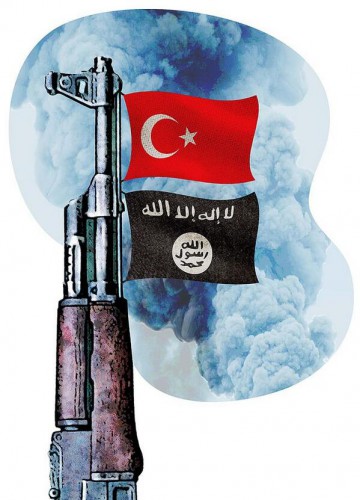 The Turkish Parliament vote on Thursday authorizing the government to send troops across the border into Iraq and Syria is a historical reversal of the legacy of Kemal Ataturk that the country would never again get entangled with the Muslim Middle East.
The Turkish Parliament vote on Thursday authorizing the government to send troops across the border into Iraq and Syria is a historical reversal of the legacy of Kemal Ataturk that the country would never again get entangled with the Muslim Middle East. 


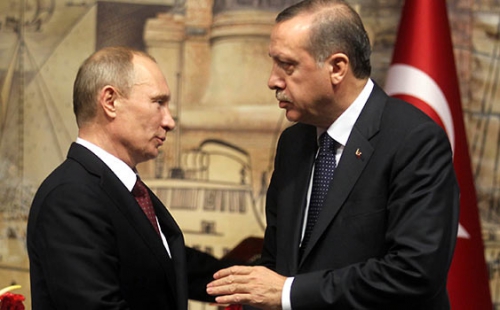

 del.icio.us
del.icio.us
 Digg
Digg